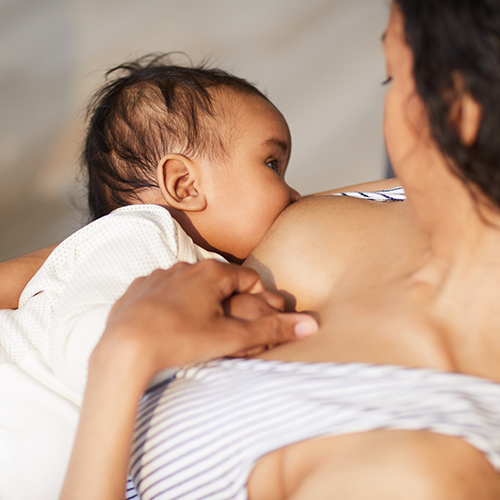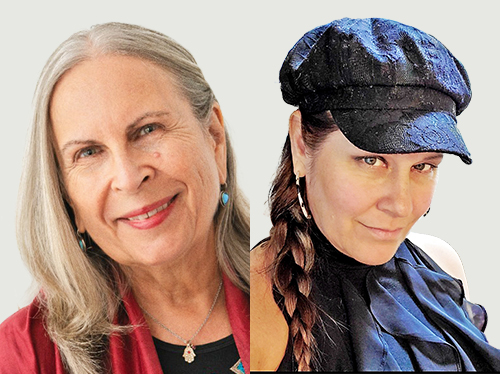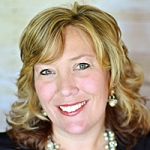 IBCLC Detailed Content Outline: Psychology, Sociology, and Anthropology Focused CERPs - Section V
IBCLC Detailed Content Outline: Psychology, Sociology, and Anthropology Focused CERPs - Section V
Access CERPs on Psychology, Sociology, and Anthropology for the IBCLC Detailed Content Outline recertification requirements. Enjoy convenient on-demand viewing of the latest Psychology, Sociology, and Anthropology focused IBCLC CERPs at your own pace.
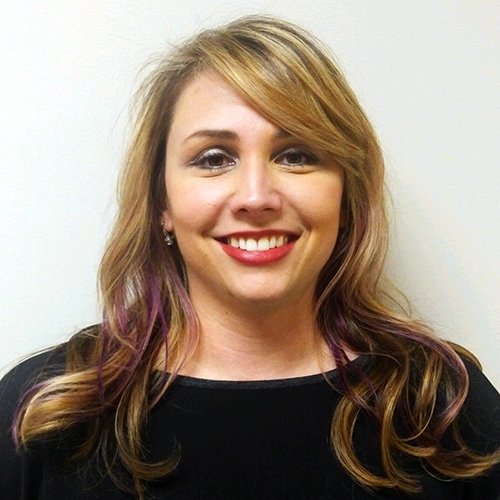
Breastfeeding and Neonatal Abstinence Syndrome

Amber Valentine is a Speech-Language Pathologist who graduated from the University of Kentucky with her MS in Communication Disorders. She is a Board Certified Specialist in Swallowing and Swallowing Disorders and an International Board Certified Lactation Consultant, as well as a Certified Neonatal Therapist (CNT). She worked for Baptist Health Systems, Inc for 8 years before moving to Florida where she worked for Wolfsons Children’s Hospital and Mayo Florida. She is now back in Kentucky working for Baptist Health Lexington. She has experience in adults and pediatrics with feeding and swallowing difficulties including: bedside swallow evaluations, Modified Barium Swallow studies, FEES, and pediatric feeding evaluations including NICU. She has experience with head and neck cancer patient including evaluation and treatment of swallowing difficulties, PMV use, and voice after total laryngectomy including TEP. She has provided guest lectures for the University of Kentucky, Eastern Kentucky University, and the University of Louisville on feeding and swallowing topics. She has presented at the hospital, local, state, national, and international levels on pediatric feeding/swallowing and breastfeeding.
Topic: Breastfeeding Medically Complex Infants in the Neonatal ICU - [View Abstract]
Topic: Building a Successful Breastfeeding Program in the NICU: Challenges and Practical Solutions - [View Abstract]
This presentation is designed to discuss the role of feeding therapy, breastfeeding, and family dynamics with infants with neonatal abstinence syndrome. These baby/family dynamics can be complex situations and feeding difficulties are extremely common. Breastfeeding education/information can be implemented prior to birth along with other education for families to promote more infant/family bonding and reduce stress of being born in substance exposure. Breastfeeding dramatically reduces stress signs in infants exposed to substances neonatally. Working together as an interdisciplinary team, we can set these families up for more successful feeding opportunities and decreased stress in developmental care.
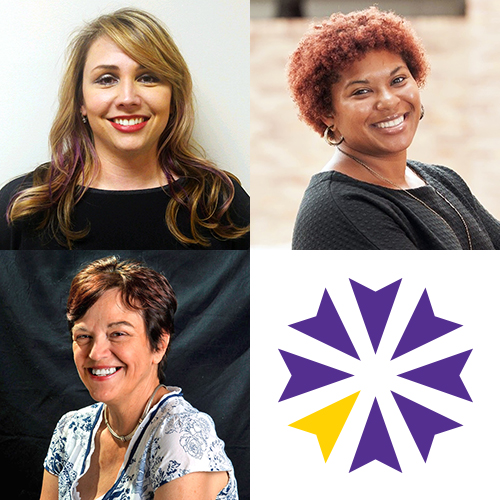
View Details / Enroll
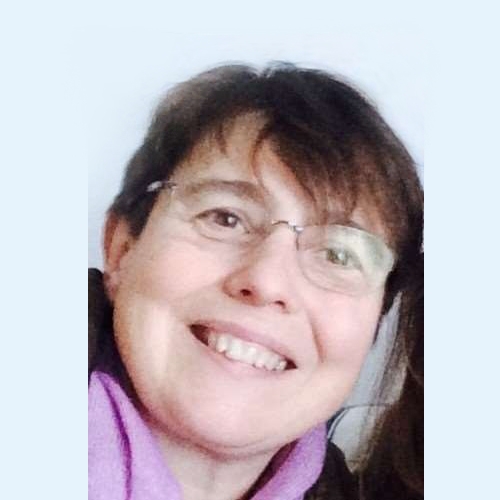
Breastfeeding and Perinatal Mood Disorders: Circuits and Circumstances

Dr. Maria Enrica Bettinelli is Lecturer of Pediatrics, University of Milan, Italy School of Medicine. As IBCLC since 2003, her research focuses on how overcoming barriers to implement breastfeeding support in the community and to promote mother and babies well-being in the perinatal period and the first years of life, adopting nurturing care approach. She has authored peer-reviewed publications on baby friendly community, breastfeeding rates in Lombardy, and the maternal and child health effects of lactation.
Her current research includes the clinical management of breastfeeding difficulties and how emotional experiences impact on breastfeeding decision. As Director of Milan Breastfeeding Network in Milan, Dr. Bettinelli leads an interdisciplinary team of clinicians, nurses and midwives that is developing new approaches to management of breastfeeding difficulties and to sharing breastfeeding education. Dr. Bettinelli is a member of the Italian Society of Pediatrics and Italian Society of Neonatology, chairs the Task Group of Education and Conference 2020 of ELACTA Board 2018-2020 and is a member of the ELACTA Board 2018-2020, and since 2012 is a member of the Academy of Breastfeeding Medicine.
Dr. Bettinelli attended University of Milan School of Medicine where she graduated with her M.D. in 1986. She completed her Residency in Pediatrics in 1989 and in Neonatology in 1991 at University of Milan and went on to complete her medical experience at Mangiagalli Hospital in Milan. Dr. Bettinelli obtained her MSc in Perinatal Mental Health in 2019.
She lives in Milan, Italy with her husband and her daughter.
Breastfeeding, attachment, and perinatal mental disorders share the same neurobiological circuits and neurosciences have shown there are connections acting both in a protective and negative sense. Relational experiences in the early years of life put the basis for future physical and mental health. Avoiding early toxic stress is essential in preventing mental problems later. Maternal depression, and in general perinatal mental disorders of parental figures, especially of the mother, have a well-documented negative effect on infants and children, altering the mechanism of responsive interaction. Depressed mothers do not engage with their children and fail to respond to their signals. Children find this situation stressful, and there may be permanent effects arising from being raised by chronically depressed parents.
According to recent studies, breastfeeding helps reduce early toxic stress, as well as allowing optimal nutrition. The responsive interaction mode is the basis of the relationship established with breastfeeding. So breastfeeding has a significant impact on the mental health of children and adolescents. The way mothers respond to their children's needs is the key to understanding these long-term effects. When mothers respond consistently to the signals of their children, they lay the foundations for the resilience of their children. By understanding that the success of breastfeeding is linked to perinatal maternal mental health, we can create awareness when counseling the breastfeeding mother.
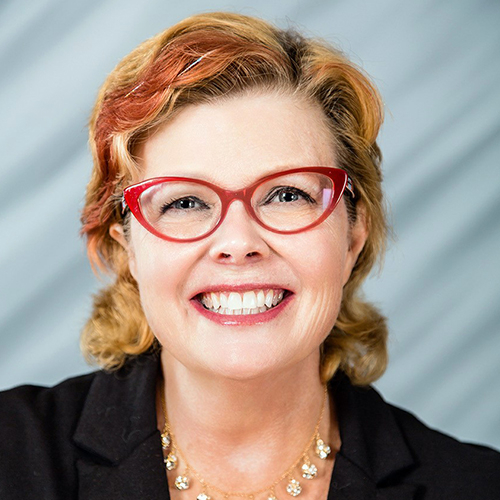
Breastfeeding and Survivors of Adverse Childhood Events

Dr. Kendall-Tackett is a health psychologist and International Board Certified Lactation Consultant, and the Owner and Editor-in-Chief of Praeclarus Press, a small press specializing in women's health. Dr. Kendall-Tackett is Editor-in-Chief of the journal, Psychological Trauma and was Founding Editor-in-Chief of Clinical Lactation, a position she held for 11 years. She is Fellow of the American Psychological Association in Health and Trauma Psychology, Past President of the APA Division of Trauma Psychology, and a member of APA’s Publications and Communications Board.
Topic: Breastfeeding Helps Mothers Overcome the Legacy of Abuse and Adversity: It Makes All the Difference - [View Abstract]
Topic: Burnout, Compassion Fatigue and Self-Care for Members of the Perinatal Team - [View Abstract]
Topic: Burnout, Secondary Trauma, and Moral Injury in Perinatal Care Providers - [View Abstract]
Topic: Does Breastfeeding Protect Maternal Mental Health? The Role of Oxytocin and Stress - [View Abstract]
Topic: Lessons to Learn from Fed Is Best: How Can We Improve Our Care? - [View Abstract]
Topic: Mother-Infant Sleep Location: It's Not as Simple as it Seems - [View Abstract]
Topic: Trauma and Breastfeeding: Working Effectively with Trauma Survivors - [View Abstract]
Topic: What’s New in Postpartum Depression? A Summary of Current Findings - [View Abstract]
Can events from childhood influence a woman’s current mothering experience and her health and well-being? Yes, they can, but they don’t have to be the blueprint for the rest of her life. This session provides an overview of the latest research on the effects of Adverse Childhood Experiences; their impact on breastfeeding; how they can affect a woman’s body, mind and spirit; and what she can do to cope.
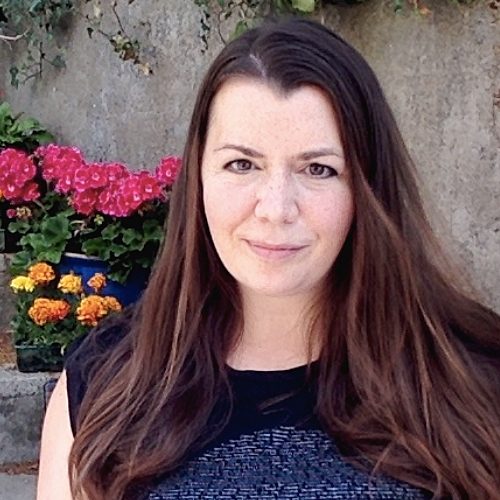
Breastfeeding as a Public Health Issue: Do we Have the Right Approach?

Professor Amy Brown is based in the Department of Public Health, Policy and Social Sciences at Swansea University in the UK. With a background in psychology, she has spent the last thirteen years exploring psychological, cultural and societal influences upon infant feeding decisions in the first year. Her research seeks to understand how we can shift our perception of how babies are fed away from an individual mothering issue to a wider public health problem – with societal level solutions. Dr Brown has published over 60 papers exploring the barriers women face in feeding their baby during the first year. She is a mother to three human children and three book babies: Breastfeeding Uncovered: Who really decides how we feed our babies, Why starting solids matters, and The Positive Breastfeeding Book: Everything you need to feed your baby with confidence. She is a regular blogger, aiming to change the way we think about breastfeeding, mothering and caring for our babies.
Topic: Breastfeeding Trauma: How Can We Recognise and Support Mothers Who Wanted to Breastfeed but Were Unable to Meet Their Goals? - [View Abstract]
Topic: How Can We Better Support Mothers Don’t Meet Their Breastfeeding Goals? - [View Abstract]
Topic: What Do Normal Infant Feeding Patterns Really Look Like? - [View Abstract]
The majority of women should be able to breastfeed, but elements of their experience are ultimately stopping them from doing so. Breastfeeding works best when done responsively but many psychological, social and cultural factors work directly or more subtly against responsive feeding, meaning that many mothers experience difficulties with breastfeeding which can lead to premature weaning. These factors can include separation of mother and baby, a lack of understanding of breast milk production, public attitudes and wider pressures of motherhood to name a few. If we want to support mothers to breastfeed we must understand and target these wider factors to create a supportive breastfeeding environment. It is important however that our approaches to breastfeeding promotion and education are perceived positively by mothers in order for them to be effective. In this presentation I’ll be addressing the common barriers to breastfeeding and their impact, along with new research that looks at how mothers perceive common breastfeeding education messaging and what this research tells us about how we can change our approach to ensure our messages have the intended impact.

View Details / Enroll
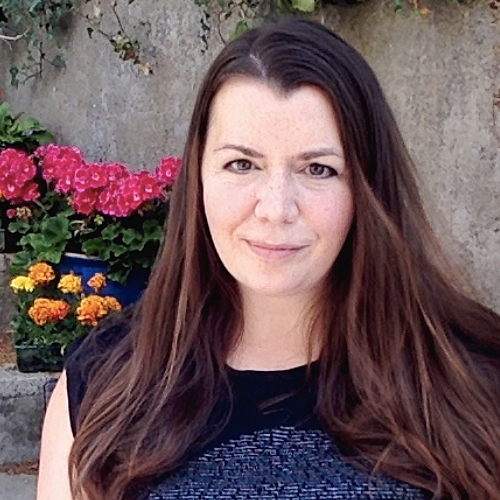
View Details / Enroll

Breastfeeding in Hong Kong and traditional Chinese wisdom on confinement practices

Heidi Lam is a private practice IBCLC and La Leche League Leader in Hong Kong. She tandem nurse her two daughters and have more then 8 years of breastfeeding experience. She was accredited as La Leche League Leader in 2009. In 2010, to she was awarded the Trudi Szallasi Memorial Scholarship from Health-e-learning.com to complete a one year course on lactation medicine. In 2011, she was qualified as International Board Certified Lactation Consultant. Her job focus mainly on home visits to clients and running breastfeeding classes. Heidi is also active in promoting breastfeeding and was often interviewed by parenting magazines and other media in Hong Kong. Heidi was a Hong Kong delegate to spoke at the Susuibu.com International Lactation Conference 2010 in Malaysia. She also speaks regularly at local breastfeeding support groups.
Breastfeeding rates upon discharge is rising in Hong Kong over the past 20 years. Breastfeeding has become more of a topic than ever before. However, it is still very common to have early introduction of formula and exclusive breastfeeding rate is still low. Most private hospitals do not allow 24 hours room in. Many mothers need to go back to work when the baby is only six weeks old. In Hong Kong, it is very common to practice a confinement period after birth. This traditional Chinese wisdom has many benefits for the mothers and babies. Mothers of other cultures can also make use of some of the practices to benefit themselves.

View Details / Enroll

View Details / Enroll
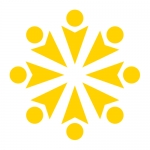

Felisha Floyd, BS, CLC, IBCLC, is currently Lactation Coordinator for Hospital Corporations of America system in Florida. She also offers infant feeding support, mentorship, and education to her local community via her private practice, Beyond Breastfeeding. Felisha is the founder of Our Brown Baby, a community based breastfeeding support group, which serves to provide specialized culturally sensitive breastfeeding support to families of color. In addition to these roles, Felisha is one of the founding mothers and current President of the non-profit The National Association of Professional and Peer Lactation Supporters of Color, affectionately known as "NAPPLSC". She is also a Center for Social Inclusion First Food Equity Cohort member. Previously, she worked as a Women, Infants, and Children (WIC) Breastfeeding Peer Counselor and Breastfeeding Coordinator.
Fueled by her professional and personal passions to ensure that all mothers have access to quality breastfeeding support and resources, Felisha has fervently pledged to reduce breastfeeding disparities in the African American community. To this end, she continually makes efforts to help increase breastfeeding rates in the African American community by unapologetically fighting that which contributes to racial health disparities. Fearlessly obsessive, she is affectionately known as the social media guru "Blactavist!" (Black Lactation Activist). This online community consists of approximately 38,000 supporters on Twitter, Facebook and Instagram, and is dedicated to empowering African American families to breastfeed.
Dianne Cassidy, MS, IBCLC, ALC, CCE, is a Lactation Consultant in Rochester, New York with Advanced Lactation Certification. Dianne works in Private Practice, and in a busy Pediatrician office supporting mothers and babies. She also teaches prenatal breastfeeding and childbirth in the hospital setting. In the fall of 2013, Dianne completed her MA in Health and Wellness/Lactation. She is dedicated to serving mothers and babies, and has the unique ability to identify with the needs and concerns of new mothers. Dianne has worked extensively with women who have survived trauma, babies struggling with tongue tie, birth trauma, milk supply issues, attachment, identifying latch problems, returning to work and breastfeeding multiples.
Dianne has 3 biological children, including twins, 3 step children and a wonderful husband. Dianne is an author and public speaker and enjoys teaching caregivers how to support new families through breastfeeding struggles.
Carmela Kika Baeza, MD, IBCLC, is a family medicine MD, bachelor´s degree in Public Health Education, and IBCLC since 2005. She is also a BFHI Evaluator and the current president of the Spanish Lactation Consultant Association (AECCLM). She works in a private Family Wellness Clinic, Raices, as person in charge of the lactation program, which includes two IBCLCs attending breastfeeding families and an extensive offer of breastfeeding training for health care professionals and breastfeeding peer counsellors. The team has trained over three thousand doctors, midwives and nurses from both the Spanish National Health Service and the private sector in Spain. She is a frequent lecturer at national conferences, and has also lectured internationally, both on-site and online. She is the author of several scientific papers on breast pain, mastitis and tongue tie. She is also the author of a breastfeeding/parenting book, “Amar con los Brazos Abiertos” (To Love with Open Arms). She is married to Carlos and they homeschool their four children.
Paulina Erices, BS, IBCLC, RLC, is the mother of three children, a bilingual Lactation Consultant (IBCLC) in private practice and Maternal Child Health Specialist for the Jefferson County Health Department in Colorado. She is originally from Chile and has lived in the US for almost 15 years. She holds a Bachelor of Science in Psychology from PennState and is currently completing her Masters of Science in Leadership and Organizations from the University of Denver. She has been a La Leche League Leader for 12 years where she has held different mother and Leader support roles across the US. She is a member of several groups working to improve child health and well-being, including the Early Childhood Colorado Partnership, the NICU Consortium, and the Community Leaders in Health Equity. Paulina's goal is to elevate and empower the voices of the community to effectively improve systems of care through advocacy and policy. Paulina lives in Littleton, Colorado where she spends her free time birding with her family and training her dog Aussie.
Fiona Lang-Sharpe, IBCLC, NAMCM, is a Birth Doula and International Board Certified Lactation Consultant in private practice in Edmonton, AB, Canada. Fiona has over 20 years of experience attending births, supporting mothers post partum, and offering lactation case management services. Having studied in England under the National Association of Maternal and Child Welfare, Fiona moved to Canada in 1989 and after having her first born son was accredited through La Leche League Canada as a Leader and went onto obtain her certification as an IBCLC. Fiona's experience in perinatal health along with her interest in technology and social media and passion for quality education makes her an excellent fit for GOLD Conferences International. Fiona is one of the first voices you'll hear as one of GOLD's online Master of Ceremonies, and is also often one of the first faces you'll see, online and in person, as she represents GOLD at industry events and via social media. Fiona is highly anticipating an expanding role with GOLD, as GOLD increases it online offerings.
The term “breastfeeding self-efficacy” gets thrown around a lot, but what does it really mean? How do we define it, why is it important and what can we be doing as lactation support providers to empower parents and have a positive impact on breastfeeding self-efficacy? Is there anything that we’re doing in our approach to breastfeeding support that is unintentionally having a negative impact? Does breastfeeding self-efficacy look the same for everyone, and how do we target marginalized communities? These are some of the questions that our experts will be tackling during the discussion with a goal of leaving listeners with concrete changes that they can immediately make to their own practice.

View Details / Enroll

Breastfeeding Trauma: How Can We Recognise and Support Mothers Who Wanted to Breastfeed but Were Unable to Meet Their Goals?

Professor Amy Brown is based in the Department of Public Health, Policy and Social Sciences at Swansea University in the UK. With a background in psychology, she has spent the last thirteen years exploring psychological, cultural and societal influences upon infant feeding decisions in the first year. Her research seeks to understand how we can shift our perception of how babies are fed away from an individual mothering issue to a wider public health problem – with societal level solutions. Dr Brown has published over 60 papers exploring the barriers women face in feeding their baby during the first year. She is a mother to three human children and three book babies: Breastfeeding Uncovered: Who really decides how we feed our babies, Why starting solids matters, and The Positive Breastfeeding Book: Everything you need to feed your baby with confidence. She is a regular blogger, aiming to change the way we think about breastfeeding, mothering and caring for our babies.
Topic: Breastfeeding Trauma: How Can We Recognise and Support Mothers Who Wanted to Breastfeed but Were Unable to Meet Their Goals? - [View Abstract]
Topic: How Can We Better Support Mothers Don’t Meet Their Breastfeeding Goals? - [View Abstract]
Topic: What Do Normal Infant Feeding Patterns Really Look Like? - [View Abstract]
It is recognised that women can experience feelings of guilt, unhappiness and anger when they cannot meet their breastfeeding goals. Breastfeeding difficulties leading to early cessation are a risk factor for postnatal depression. However, research has not previously examined these feelings of loss and distress in relation to clinical models of trauma.
From a research study exploring the experiences of over 3000 women who stopped breastfeeding before they were ready and held negative emotions around this decision, I argue that a subset of these women are displaying symptoms of clinical trauma in relation to their experience. The trauma stems from physical experiences of a difficult breastfeeding experience, but also the loss of a much-desired breastfeeding relationship. The combination of these events leaves the individual traumatised and understandably reactive to the topic of breastfeeding.
Trauma models identify numerous emotions and behaviours that individuals typically display when they have been traumatised by an event. These include recurrent distressing recollections of the events, intense psychological distress at exposure to reminders of the event and efforts to avoid thoughts, feelings or activities that remind one of the event.

View Details / Enroll
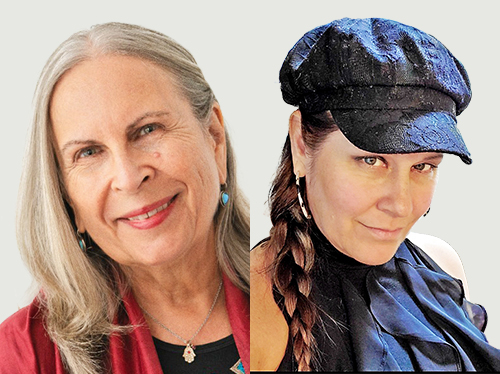

Barbara Harper is an internationally recognized expert on waterbirth and gentle birth, a published author of books and journal articles, who founded the non-profit organization, Waterbirth International, in 1988, with one goal in mind – to ensure that waterbirth is an “available option” for all women. During the past five decades Barbara has worked as an obstetric, pediatric, and critical care nurse, midwife, midwifery instructor, childbirth educator, and Blissborn Hypnosis teacher/trainer. She teaches unique seminars within hospitals, nursing schools, midwifery and medical schools and community groups worldwide. Her bestselling book, ‘Gentle Birth Choices,’ has been translated into 9 languages, including Chinese. Her latest collaborative book project was published in May 2021, called Bringing Birth Home. She is also working on a new book project called Gentle Birth Wisdom. She lives in Boca Raton, Florida teaching Blissborn Classes and attending occasional births.
Charlotte Sanchez is a childbirth educator and midwife. Supporting women and their families in the natural home birth process consecutively now for 30 years. As an Atlanta midwife, she believes in a woman’s right to determine her own choice of care during pregnancy and birth. Charlotte received her training through an extensive internship before becoming a Certified Professional Midwife (CPM), a program developed by the North American Registry of Midwives. She gained vast experience co-directed a free standing family birthing center in the state of Michigan. As well as founding Pregnancy Beat a national pregnancy website featuring expert articles, videos, birth stories and a community for mothers. It was after attending home births throughout the United States and Canada in places such as Windsor, Michigan, Ohio, Kentucky, California and Georgia that she now resides in Atlanta. Recently after completing 10 years serving as Vice President of the Georgia Midwife Association Charlotte decided to move forward to pursue her passion with teaching. She specializes in water birth, vbac, twins and breech birth. She has trained highly motivated students who have became practicing Midwives. Personally Charlotte is a mother of four children whom three were born gently into the hands of midwives, with the last a home water birth 25 years ago.
A steady decline in the rate of vaginal term breech birth over the past three decades has led to a resurgence of vaginal breech birth in many parts of the world. The dedication of researchers, teachers, providers, and non-profit organizations has fostered on- going studies, published research, and provided hands-on training. Within that dedicated group of professionals there is a controversy surrounding using water for second stage. There are strong opinions on either side. Dr. Herman Ponette, the head obstetrician at the H. Surreys Hospital in Ostend, Belgium, was the first obstetrician to detail his experience using water immersion for term breech vaginal birth in the early 1980s. Using water as a comfort measure for early labor is not currently in question. Most experienced breech providers have limited experience using water for the actual birth.
This session will examine the pros and cons of facilitating breech birth in water from a provider perspective. A brief discussion of fetal reflexes and newborn transitional physiology will be included as well as a summary of the current research. Using photos, video of breech waterbirths, and video demonstration on models of hand positions and techniques to assist with a breech birth will introduce the participant to this topic and create an interest for further research and investigation.

View Details / Enroll
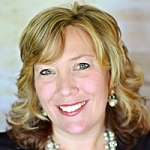
Bridging the Gaps to Provide a Continuum of Care

Christy Jo has over 25 years of teaching experience. She is passionate about teaching in ways that simplify learning. She has been awarded the United States Presidential Volunteer Award for her community service, the Phyllis Klaus Founder's Award for her contribution to the Mother/Baby bond and the Above and Beyond Award for innovative projects that exemplify the mission of Public Health. She has also been named Lactation Educator Faculty of the Year from Childbirth and Postpartum Professionals Association and earned their Visionary Award in 2015. Christy Jo is the author of Mommy Feeds Baby and co-author of Making Milk. She created the Grow Our Own Lactation Consultant/IBCLC Prep Course which has been used to train hundreds of students to become Lactation Consultants. She currently resides in California with her husband and three children. She continues to serve her community as a birth doula, Private Practice IBCLC, Health Educator for Public Health, and faculty for the CAPPA CLE© and Childbirth Educator Programs.
Topic: Enhanced Counseling Skills for the Lactation Educator - [View Abstract]
Topic: Expanding Our Audience to Gain Greater Appreciation and Acceptance of Breastfeeding - [View Abstract]
Topic: Sharing Your Wisdom: From Abstract Idea to Awesome Prenatal Breastfeeding Class - [View Abstract]
Topic: The Art of Communication: Simplifying Birth and Breastfeeding - [View Abstract]
Promoting collaborations among caregivers and healthcare providers to ensure consistent and continual breastfeeding support.
This talk uses humor and scenarios to point out the necessity that those entrusted with a family’s care be professional, inclusive and open in order to provide the best support possible.

View Details / Enroll
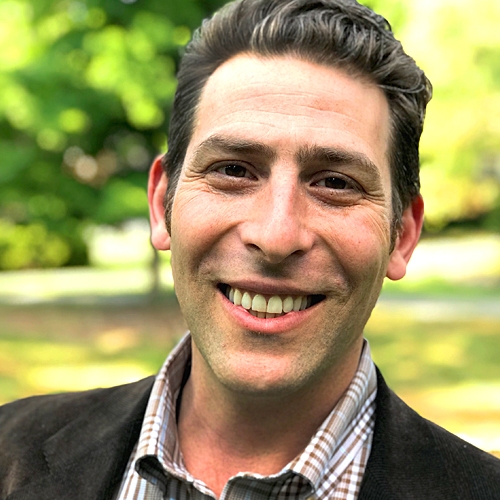

Dr. Yale Nogin is the creator of The Hero Dad™ Program taught at Piedmont and Kennestone Hospitals in Atlanta, GA and is the author of The Hero Dad’s Infant Manual. He has been teaching classes for expecting, new and adopting fathers over the last 15 years and counting.
His program focuses on empowering men with relevant principles, skills, systems and behaviors that earn respect from their partners which enable the couples to co-create a relaxed home environment. Being a new father with an Infant management system, post-partum support skills, and a system for “listening to understand” help new fathers feel confident and willing to participate early on which helps keep them invested in their family.
Dr. Nogin is passionate about preventing the fatherlessness epidemic from getting worse. The time surrounding birth is a crucial time to equip men with skills to help navigate the many changes and responsibilities that come with being a parent and partner so men want to come home at night.
The perinatal period is a pivotal point in lives of both expecting mother and father. This time period can prove to be a perfect opportunity for the birthing community to help men engage with their upcoming role and responsibilities of fatherhood and “husband-hood w/baby”. If we are able to positively influence men to be engaged with their new family from the beginning we can increase the odds of positive birth outcomes. Unfortunately, men report to feel “left out” and “marginalized” during the prenatal visits, education and delivery. To create a change and help create better family outcomes we must work together to bring men more into the fold during this time period. We will discuss ways in which the birth community can help men such as being more conscious of where men are emotionally during the perinatal visits and by using positive reinforcement of what new relevant fatherhood and masculine behavior looks like such as the ability to listen and understand our partners, self-awareness and self-control as well as our openness to grow and learn these modern behaviors and skills that most men today have not been exposed to in order to the respect they are seeking from their partners and children.

View Details / Enroll





